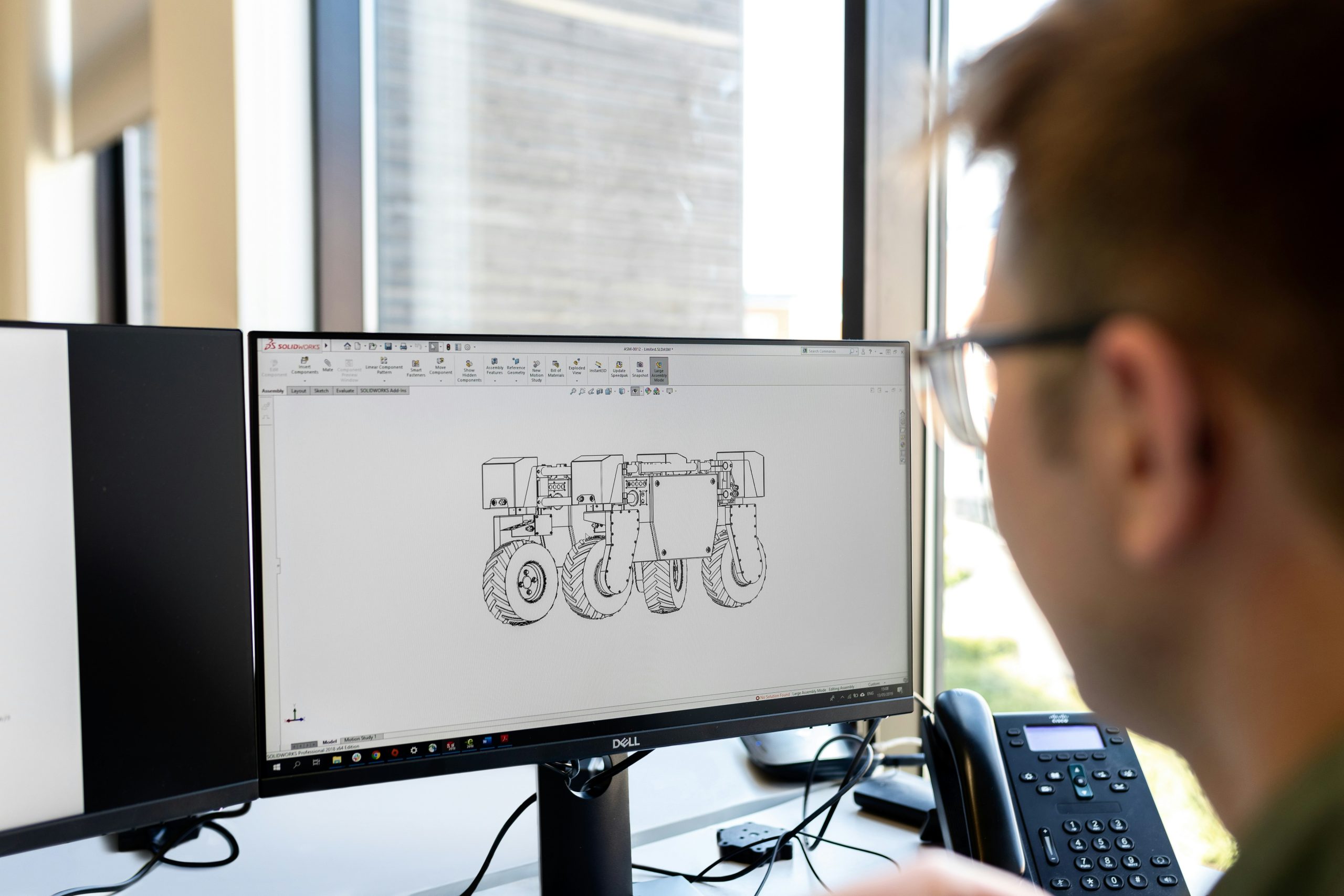Today, manufacturing plays a critical role in the U.S. economy, accounting for almost 10% of the nation’s value-added output and contributing $2.94 trillion to the economy in the fourth quarter of 2024 alone.
As technology advances and production processes evolve, manufacturing engineering professionals play a crucial role in ensuring that industries operate safely, creating a high demand for skilled professionals in this field.
With strong earning potential and job security, it’s easy to see why exploring a career in manufacturing engineering technology is a beneficial choice. Before entering the field, it’s essential to understand the various career options available and the specific differences between a manufacturing engineering technician and technologist.
Technician vs. technologist: Understanding the differences
Manufacturing engineering technologists and technicians play a crucial role in resolving production-related issues and improving manufacturing efficiency. While some responsibilities overlap, there are also key distinctions between each role.
Duties and responsibilities
Both technicians and technologists are essential to the success of manufacturing operations. While technicians are usually more involved in the practical application of systems, technologists take a more strategic approach, focusing on design improvements and long-term solutions.
Technicians
Manufacturing engineering technicians focus on the hands-on side of manufacturing. They perform tasks such as operating equipment, running diagnostics, maintaining systems, and ensuring the production process runs smoothly. They work under engineers or engineering technologists, supporting daily functions on the manufacturing floor and assisting with troubleshooting issues. Their work is critical to maintaining productivity and minimizing downtime.
Technologists
In contrast, technologists often assume a broader range of responsibilities. They focus on assisting in system design, workflow planning, and improving efficiency. Technologists work with engineers using their technical expertise to develop and refine manufacturing processes. They often oversee projects and guide as a team leader, acting as a bridge between engineering theory and real-world manufacturing practices.
Education and required qualifications
Manufacturing engineering technicians and technologists typically earn an associate degree or certificate in this specialization. Manufacturing engineering technology (MET) programs emphasize technical knowledge and practical skills, which are critical in preparing students for real-world manufacturing environments.
Technicians
In addition to an associate degree, credentials from professional organizations can help technician candidates stand out. For example, the National Institute for Certification in Engineering Technologies (NICET) offers technician certification programs that allow individuals to specialize in a specific area of manufacturing engineering.
Technologists
Although technologists often hold the same associate degree, they tend to take on more advanced responsibilities. Some technologists choose to pursue a bachelor’s degree to become more knowledgeable and broaden their career opportunities.
Get your Manufacturing Engineering Technology degree at Goodwin University
Careers in manufacturing engineering technology
In 2023, over 74,500 industrial engineering technologists and technicians were employed, and this number is expected to increase 4% over the next decade. The projected growth highlights the ongoing demand for skilled professionals in these roles, as manufacturing continues to rely on technical experts to enhance production, integrate new technologies, and maintain competitiveness.
Whether you’re working as a technician or technologist, the impact of manufacturing extends far beyond factory floors. In fact, research shows that for every $1.00 spent in manufacturing, there is a total impact of $2.64 to the overall economy.
Careers in manufacturing engineering technology contribute not only to individual companies but also to the broader economic landscape, making them especially valuable and rewarding.
Here are a few industries where MET professionals thrive, and their salary information:
Chemical manufacturing
Average Salary: $79,940 per year
Chemical manufacturing professionals, including chemical operators, engineers, and technicians, are involved in the production, processing, and handling of chemicals used in industries such as pharmaceuticals, agriculture, and consumer goods. Their work helps ensure consistent safety, quality, and operations within high-stakes manufacturing environments.
Computer and electronic product manufacturing
Average Salary: $101,020 per year
Computer and electronic product manufacturing professionals, such as engineers, technicians, quality control inspectors, and production workers, work with electronic components, printed circuit boards, and other specialized manufacturing equipment. Their work supports the creation of everything from smartphones and printers to aerospace electronics.
Machinery manufacturing
Average Salary: $74,400 per year
Machinery manufacturing professionals, including technicians, machine operators, and engineers, operate, maintain, and oversee the systems that produce mechanical equipment. They set up, adjust, and troubleshoot equipment to ensure quality control and adhere to safety protocols.
Transportation equipment manufacturing
Average Salary: $72,060 per year
Transportation equipment manufacturing professionals, like machinists, welders, engineers, and quality control specialists, support the production and assembly of vehicles and their components. They build cars, planes, and other transportation products.
Professional, scientific, and technical services
Average Salary: $102,670 per year
Professionals in professional, scientific, and technical services, such as software developers, automation technicians, and management consultants, provide specialized expertise and knowledge, including scientific research, consulting, and engineering support, to clients across various industries. These professionals help develop prototypes, refine processes, and ensure technical accuracy in client deliverables.
Outcomes of an MET program
A degree in Manufacturing Engineering Technology prepares students for a wide range of roles in the manufacturing industry by combining technical training with real-world experience. Whether you aspire to be a technician or technologist, students gain a strong foundation in topics that prepare graduates to support and enhance complex production systems across various industries.
Goodwin University’s Associate of Science in Manufacturing Engineering Technology emphasizes expert instruction and hands-on learning with state-of-the-art equipment and software. Students experience simulations of real-world production challenges and gain the practical experience necessary to thrive from the classroom to the career. This exposure ensures students are ready to step into the workforce with confidence.
Graduates of the MET program leave well-positioned for immediate employment or to continue their education in related fields. Whether you’re looking to enter the workforce or continue your education, Goodwin’s program can open the door to high-paying, high-demand careers in modern manufacturing.
